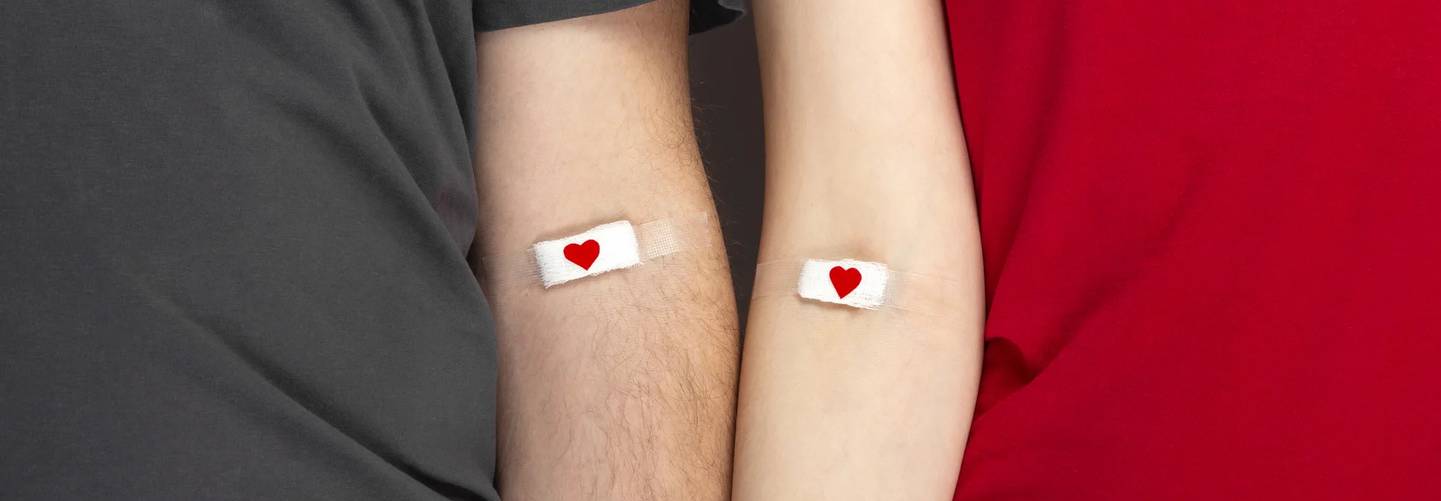
10 Jun Blood Donation – What you need to know
Blood Donation – What you need to know
By Island Hospital | June 10, 2024 12:00:00 PM
Giving blood can be a life-saving action for the recipients, but it may also benefit the donor.
This article will explain the health benefits of donating blood, the eligibility, and handy tips before and after donating blood.
How can you benefit from donating blood?

A donor will have to undergo a simple blood test before giving blood.
While these tests are not in-depth tests, they may help to identify health concerns which were unknown to the donor, such as anemia or high or low blood pressure.
The preliminary test will check the donor for the following conditions:
- Blood pressure
- Heart rate
- Haemoglobin, or iron levels
- Blood group
Should the test reveal a problem, the donor will be unable to donate blood. On a positive note, the results could be the initial step towards seeking treatment.
Blood Donation Eligibility

First, ensure that you are fit, well and healthy, and determine if you are eligible for a donation.
- Age:
- At Island Hospital, first time and regular donor can be between 18-60 years old.
- Prospective donor aged 17 years old must provide a guardian/parents’ written consent
- Weight:
- At least 45kg
- Illnesses:
- No medical illness
- High risk activities:
- Not involved in any high-risk sexual activities such as homosexual, bisexual, sexual contacts with sex workers, changing sexual partners, taking intravenous drugs, or having sexual relations with any of the above.
- Last blood donation:
- Island Hospital follows the National Blood Centre guidelines to accept blood donors with a minimum interval of 3 months from his/her last whole blood donation,
- It is allowed as long as the minimum Haemoglobin level and MCV level of more than 80fL is achieved.
- Do note that the maximum number of whole blood donations is 4 times yearly.
- Female Donors:
- Female donors must not be pregnant, their last menstrual period must be more than 4 days ago, and they must not be breastfeeding.
- Do not donate blood if you had:
- Stayed in the United Kingdom (England, Northern Ireland, Scotland, Wales, Isle of Man or Channel Islands) or Ireland from 1980 until 1996 for 6 months or more.
- Stayed in Europe from 1980 until now, for 5 years or more.
There could be several reasons behind your menstrual cycle being late. Read our article on “Why is My Period Late? 10 Reasons & When to Worry” to learn more.
Quick Preparation for Your Blood Donation

- Have at least 5 hours of sleep the night before you plan to go for a donation.
- Eat a healthy meal before your donation. Avoid fatty foods, such as a hamburger, fries or ice cream.
- Drink plenty of water and keep hydrated.
- Check to see if the medications that you are taking or have recently taken would prevent you from donating. Talk to your doctor before discontinuing any medications.
- Wear a shirt with sleeves that can be rolled up above your elbows.
What to bring
- Original MyKad for Malaysians or a passport for foreigners
- Your blood donation booklet, if you have one.
What to Expect on the Day of Your Donation

When you arrive at the laboratory to donate blood, you will fill out a blood donation enrollment form, which includes your medical history and behaviours known to carry a higher risk of blood-borne infections.
Due to the risk of blood-borne infections, not everyone can donate blood.
You will also have a quick health check, which includes checking your blood pressure, pulse and temperature.
A small blood sample will be taken to check your blood haemoglobin level. You can donate blood if your haemoglobin concentration is normal and you’ve met all the other screening requirements.
For a virtual walkthrough of our laboratory, watch the video here.
In case you’re facing high blood pressure, it’s important to understand the risks and how to manage it. Read our article on “Hypertension – the silent killer you need to know” to learn more!
During the Blood Donation Process

You will be asked to lie or sit on a reclining chair with your arm extended on an armrest. Do let us know if you have a preference for which arm or vein to use.
We will place a blood pressure cuff or tourniquet around your upper arm to fill your veins with more blood. This makes the veins easier to insert the needle into and helps fill the blood bag more quickly.
Then, the skin inside your elbow is cleaned, and a new needle is inserted into a vein in your arm. This needle is attached to a thin, plastic tube and a blood bag.
When the needle is in place and ready, you will be asked to slowly squeeze and release your fist a few times to help the blood flow.
Blood samples will be sent to the labs for infectious disease screening tests. When these have been collected, blood is allowed to fill the bag.
The usual collection is 350- 450 mL of blood, depending on the donor’s body weight and gender.
It usually takes about 8-10 minutes to fill the bag. Upon completion, the needle is removed, and a small bandage is placed on the needle site.
Care Tips after Donation

It is advisable to drink extra fluids after your donation and avoid strenuous physical activity or heavy lifting for 24 hours.
If you feel lightheaded, lie down with your feet up until the feeling passes. You may also consider adding iron-rich foods to your diet to replace the iron lost with blood donation.
Do remember to keep your bandage on and dry, and if bleeding occurs after removing the bandage, put pressure on the site and raise your arm until the bleeding stops.
If bruising occurs, apply a cold pack to the area periodically during the first 24 hours, followed by a warm pack.
Every Drop Of Blood Saves Lives – Schedule Your Blood Donation At Island Hospital

Every blood donation can save up to three lives; therefore, Island Hospital urgently needs blood donations to support our patients in need. Your contribution can make a significant difference and save lives.
Our Blood Donation Centre is conveniently located on the 3rd floor of the Macalister Wing. We are open Monday to Friday from 9:00 AM to 5.00 PM, and on Saturdays from 9:00 AM to 1.00 PM, making it easy for you to find a time that fits your schedule.
At Island Hospital, we prioritise your comfort and safety. Our state-of-the-art facilities and dedicated healthcare professionals ensure a seamless and positive donation experience. Your health and well-being are our top priorities.
Join us in this life-saving mission. Contact us today!







